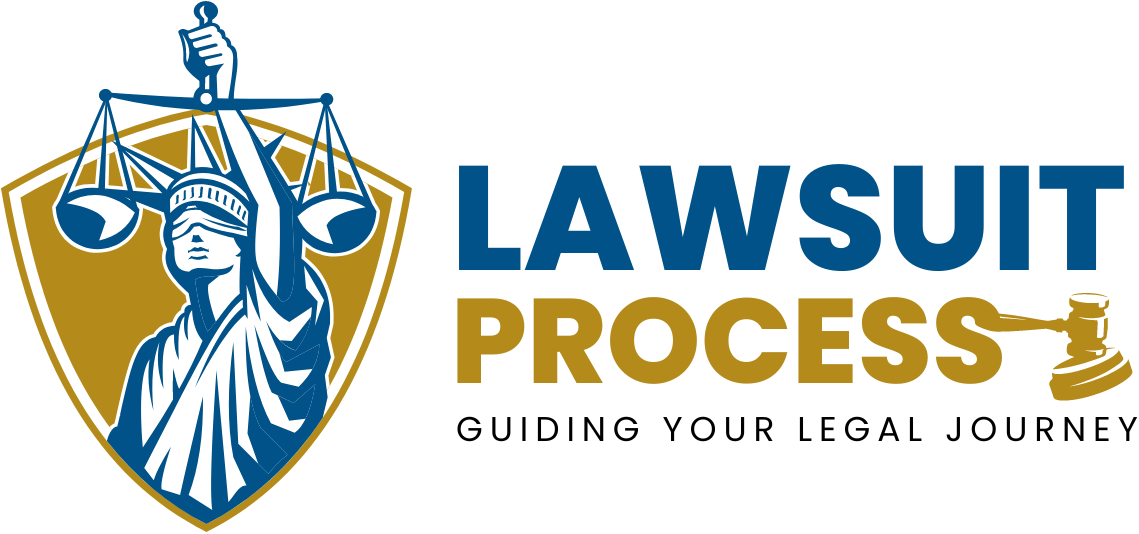Getting summoned to court is a serious matter, whether it’s for a civil case, a criminal charge, or even just a traffic violation. But what happens if you don’t show up in court? Skipping a court date might seem tempting especially if you’re nervous or unsure of what to expect. But the consequences can be significant, long-lasting, and sometimes even life-altering.
In this article, we’ll break down what can happen if you fail to appear in court, how the type of case affects the outcome, and what steps you should take if you’ve already missed a court date.
If you need legal advice or representation, you can find a lawyer from our lawyers directory.
Table of Contents
- Understanding “Failure to Appear” (FTA)
- What Happens in Criminal Cases?
- What Happens in Civil Cases?
- What If You Miss a Traffic Court Date?
- Are There Valid Reasons for Missing Court?
- What to Do If You Already Missed a Court Date
- Can You Reschedule a Court Date in Advance?
- How It Affects Your Record
- Key Takeaway
- Frequently Asked Questions (FAQs)
Understanding “Failure to Appear” (FTA)
When you miss a scheduled court appearance without proper notice or a valid reason, the legal system classifies it as a “Failure to Appear” or FTA. This is not just an inconvenience for the court—it’s often treated as a separate legal offense.
Whether you’re a defendant, a witness, or even someone involved in a civil matter, failing to appear signals non-compliance and may trigger a range of legal penalties.
What Happens in Criminal Cases?
In criminal proceedings, skipping court is especially serious. Here’s what might happen:
- Bench Warrant Issued: The judge will likely issue a bench warrant for your arrest. That means police can arrest you at home, work, or even during a routine traffic stop.
- Additional Criminal Charges: Failing to appear can be charged as a misdemeanor or even a felony, depending on the original offense.
- Bail Forfeiture: If you posted bail, you could lose that money. The court considers it a breach of trust.
- Harsher Sentencing: Judges view FTA as a sign of disrespect for the legal process, which may lead to stiffer penalties if you’re convicted.
What Happens in Civil Cases?
Missing court in a civil matter—like a lawsuit or small claims hearing—won’t get you arrested, but the consequences are still serious.
- Default Judgment: If you’re the defendant, the court may automatically rule in favor of the plaintiff. That means you could lose the case without saying a word.
- Fines and Court Costs: You may be ordered to pay the other party’s legal fees, court costs, or damages.
- Wage Garnishment and Asset Seizure: If a judgment is entered against you, your wages could be garnished or your assets seized to satisfy the court’s order.
What If You Miss a Traffic Court Date?
Even something as seemingly minor as a traffic ticket can have consequences if you skip your court date.
- License Suspension: Many states will suspend your driver’s license automatically if you fail to appear.
- Warrant for Arrest: In some cases, especially if the violation was serious, a warrant may be issued.
- Fines and Fees: You may face additional fines or late fees for missing court.
Are There Valid Reasons for Missing Court?
Certain situations may be accepted by the court as valid reasons for not showing up, such as:
- Medical emergencies
- Death or serious illness in the family
- Unavoidable travel issues (with proof)
- Not receiving a proper court notice (though this can be tricky to prove)
Even with a valid excuse, you must contact the court or your attorney as soon as possible. In many cases, you’ll need to provide documentation to support your reason for missing court.
What to Do If You Already Missed a Court Date
If you’ve already missed a court appearance, don’t panic—but don’t ignore it either. Here’s what you should do immediately:
- Contact an Attorney: Legal representation can help you navigate the situation and may even get the warrant lifted.
- Call the Court: Some courts allow you to reschedule or explain your absence directly—especially if it’s your first time missing a date.
- Prepare to Surrender: If a warrant has been issued, voluntarily turning yourself in can show good faith and potentially reduce penalties.
- Gather Documentation: If you had a valid reason for missing court, collect proof before speaking to the judge or clerk.
Can You Reschedule a Court Date in Advance?
Yes, in many cases, you can file a request for a continuance. This must be done ahead of time and usually in writing. Courts may grant a rescheduling if you provide a valid reason and act promptly. However, the request must be filed before the actual court date unless it’s an emergency.
How It Affects Your Record
Failing to appear can stain your legal record. A criminal FTA can show up in background checks, making it harder to get jobs, housing, or professional licenses. In civil matters, default judgments can negatively impact your credit score and financial health for years.
Key Takeaway
Not showing up to court can lead to serious consequences—regardless of whether your case is criminal, civil, or related to a traffic matter. The legal system doesn’t take no-shows lightly. Arrest warrants, fines, judgments, and even new criminal charges can follow a missed court date.
- Failing to appear is considered a legal offense in most cases.
- In criminal cases, it can lead to arrest, new charges, and lost bail money.
- In civil matters, you risk default judgments and financial penalties.
- Traffic court no-shows can result in suspended licenses and fines.
- Always notify the court ahead of time if you can’t make your appearance.
- If you’ve already missed a date, act fast—call a lawyer and contact the court.
Frequently Asked Questions (FAQs)
1. What is a bench warrant, and how is it issued?
A bench warrant is a type of arrest warrant issued by a judge when someone fails to appear in court. Once issued, law enforcement can arrest you at any time, including during traffic stops, at your home, or your workplace.
2. Can I go to jail for not showing up to court?
Yes, especially in criminal cases. If a judge issues a bench warrant for your arrest due to failure to appear, you can be taken into custody and held in jail until your court appearance.
3. Will I be fined if I miss a court date?
In both civil and criminal cases, courts may impose additional fines for failing to appear. You might also have to pay late fees, court costs, or compensation to the other party.
4. Does missing court affect my credit score?
Yes, in civil cases. If a default judgment is entered against you, it can be reported to credit bureaus, leading to a negative impact on your credit score.
5. Can I reschedule a court date if I can’t attend?
Most courts allow you to file a motion for a continuance before your court date. You must have a valid reason and follow proper procedures to request rescheduling.
6. What if I never received my court summons?
If you didn’t receive proper notice, you may be able to challenge the consequences of your failure to appear. However, you’ll need to prove you were not properly served.
7. How do I check if I have a bench warrant?
You can check online with your local court or law enforcement website, call the courthouse, or have an attorney check for you. Avoid going in person if you suspect a warrant exists.
8. Can I get a failure to appear charge dismissed?
Yes, in some cases. If you had a valid excuse and act quickly, a judge may dismiss or reduce the failure to appear charge. A lawyer can help you file the proper motion.
9. What happens to my bail if I don’t show up?
You will likely forfeit your bail. That means the court keeps the money or bond posted on your behalf, and you may not get it back—even if you appear later.
10. Can I clear a bench warrant without going to jail?
Yes, sometimes. An attorney may be able to file a motion to quash the warrant or arrange a court appearance where you can explain your absence without being taken into custody.
11. Will missing court show up on background checks?
Yes. A failure to appear, especially if it leads to a warrant or additional charges, will likely show up on criminal background checks and public records searches.
12. What happens if I miss traffic court?
You could face license suspension, additional fines, or even a bench warrant in some jurisdictions. Penalties vary depending on the severity of the violation.
13. Is missing jury duty the same as missing court?
While jury duty is a civic obligation, missing it can still lead to penalties like fines or a contempt of court charge. However, it typically doesn’t carry criminal consequences like missing a defendant’s court date.
14. Can I be arrested at a routine traffic stop for missing court?
Yes. If a bench warrant is active due to a missed court appearance, officers can arrest you during any encounter, including a simple traffic stop.
15. Can I explain my absence to the judge after missing court?
Yes. If you missed court, appear as soon as possible and be prepared to explain why. Documentation like hospital records or proof of emergency may help your case.
16. What happens if I miss court due to a medical emergency?
If you can provide proof, such as a doctor’s note or hospital records, the court may reschedule your appearance and waive penalties. Always notify the court as soon as possible.
17. Can I handle a missed court date without a lawyer?
You can try, but it’s risky. A lawyer knows how to navigate the system and may prevent further legal damage, especially if a warrant or new charge has been issued.
18. Will I automatically lose my case if I miss court?
In civil cases, yes. The judge may enter a default judgment against you. In criminal cases, your case won’t proceed without you, but you may face new legal trouble.
19. How long does a bench warrant last?
Bench warrants don’t expire. They stay in effect until the person is arrested, appears in court, or the court recalls the warrant. You can’t outrun it with time.
20. Can I fix a failure to appear after several years?
Yes, but it’s more complicated. You’ll likely need legal help to explain the delay, clear any warrants, and possibly face penalties for the time elapsed. Acting sooner is always better.










